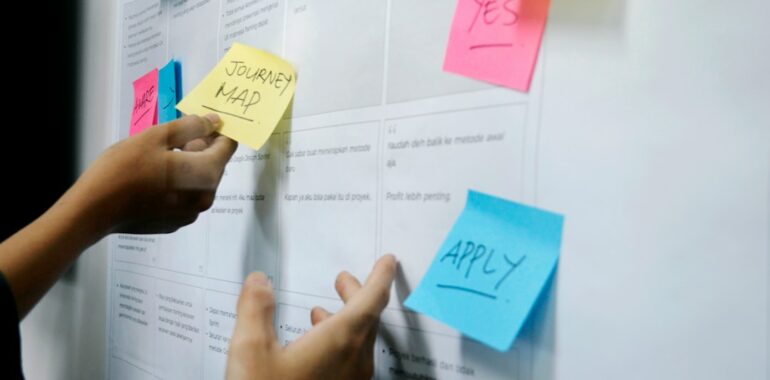The Future of Strategic Planning: AI and Automation Transforming Project Management

Meta Description: Learn how AI and automation are revolutionizing strategic planning in projects, enhancing efficiency and driving business success.
Introduction
The future of project management is rapidly evolving, driven by advancements in artificial intelligence (AI) and automation. These technologies are not just enhancing traditional methodologies but are fundamentally transforming how strategic planning is conducted. By integrating AI and automation, project managers can achieve greater efficiency, precision, and success in their endeavors.
Enhancing Decision-Making with AI Insights
Strategic planning relies heavily on data-driven decision-making. However, the sheer volume of data can be overwhelming. AI bridges this gap by providing predictive insights and actionable recommendations, enabling project managers to make informed decisions swiftly.
Example: Renewable Energy Optimization
In regions like Southern California, where renewable energy projects are prominent, AI tools analyze environmental data and equipment performance in real-time. This ensures optimal placement and operation of solar panels, reducing installation times and maximizing energy production even under fluctuating conditions.
Automating Routine Tasks for Greater Efficiency
Automation handles repetitive tasks such as updating schedules, generating reports, and tracking progress. This allows project managers to focus on strategic priorities like leadership and stakeholder engagement.
Example: Construction Scheduling in the Inland Empire
The Inland Empire’s construction industry benefits from automation tools like Primavera P6, which streamline scheduling and resource allocation. Automated updates and notifications ensure seamless communication, minimizing delays and errors in large-scale projects.
AI-Driven Risk Management
Effective risk management is crucial for project success. AI excels in identifying potential risks by analyzing historical data and recognizing patterns that may not be immediately apparent.
Example: Managing Risks in Public Transportation Projects
In Los Angeles, AI-driven platforms model risk scenarios for public transportation expansions. By analyzing traffic data and financial projections, these systems help project managers anticipate bottlenecks and avoid costly delays, ensuring projects stay on track and within budget.
Personalized Project Strategies with AI
AI enables the creation of tailored project strategies by analyzing variables such as team dynamics, resource availability, and project complexity. This customization maximizes efficiency and aligns workflows with specific project needs.
Example: Agile Workflow Optimization in Silicon Beach
Startup hubs like Silicon Beach utilize AI platforms to optimize Agile workflows. By dynamically allocating tasks based on team members’ skills and availability, AI ensures that projects adapt to changing priorities and challenges, enhancing overall productivity.
Resource Optimization with AI
Allocating resources effectively is one of the most challenging aspects of project management. AI analyzes project requirements alongside available resources to recommend optimal utilization strategies.
Example: Film Production in Hollywood
In Hollywood’s demanding entertainment industry, AI tools like StudioBinder assist in resource allocation by managing filming locations, crew schedules, and equipment usage. This prevents overlapping bookings and reduces unnecessary costs, ensuring smooth production processes.
Generative AI: A New Frontier in Project Creativity
Generative AI is revolutionizing creative problem-solving in project management. Tools like ChatGPT and Jasper assist in drafting project charters, brainstorming solutions, and generating innovative ideas.
Example: Enhancing Creative Projects in Los Angeles
Marketing agencies in Los Angeles leverage generative AI to produce high-quality content rapidly. This not only accelerates the creative process but also introduces fresh ideas that align with client visions, resulting in successful campaigns delivered on time and within budget.
AI in Sustainability Projects
AI contributes to sustainability by optimizing resource use and minimizing waste, ensuring projects align with environmental goals.
Example: Smart Water Management in Orange County
Orange County employs AI to monitor and manage water usage in urban development projects. AI-driven systems design efficient irrigation schedules, reducing water waste and lowering utility costs, thereby promoting sustainable urban growth.
Conclusion
AI and automation are undeniably shaping the future of project management. By enhancing decision-making, automating routine tasks, managing risks, personalizing strategies, optimizing resources, fostering creativity, and promoting sustainability, these technologies empower project managers to deliver superior results with greater efficiency. Embracing AI and automation today positions organizations to lead and thrive in the dynamic landscape of tomorrow’s project management.
Ready to take your project management to the next level? Discover how TOPY.AI can transform your strategic planning and drive your business success today!




